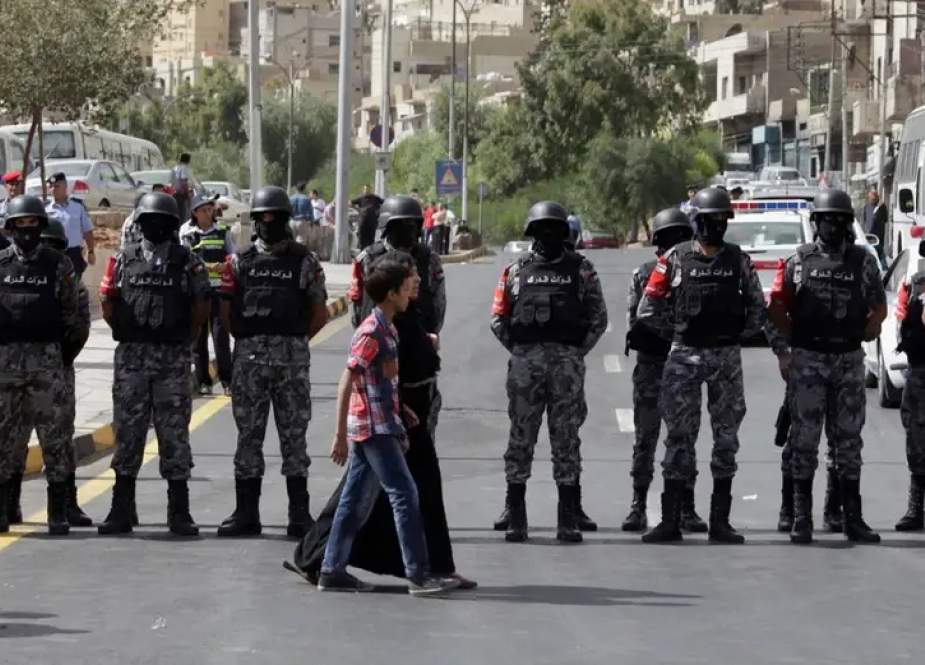Banned after 80 years | the Muslim Brotherhood ban in Jordan.
After years of tense relations between the Muslim Brotherhood and the Jordanian government, Amman announced last week that it would ban the activities of Muslim Brotherhood-affiliated groups in the country. Jordanian authorities have accused the group of “engaging in activities that could destabilize and undermine national security and unity.” The Muslim Brotherhood has been politically active in Jordan for decades, and the banning of the Islamist group raises the question of why the Brotherhood was banned after eight decades.
The Jordanian Muslim Brotherhood, from its founding to its split
The Muslim Brotherhood is the oldest and largest Islamic organization in Jordan. The Jordanian group was founded in Amman in 1946 with the coordination of its central core in Egypt and received official permission from the Jordanian prime minister at the time. The group was previously founded in Egypt in the 1920s. The Muslim Brotherhood currently has more than 10,000 members in Jordan.
In 2015, the Jordanian Muslim Brotherhood split into two reformist groups, the Muslim Brotherhood Society and the Traditional Muslim Brotherhood. Although the two factions are political rivals, they adhere to the core principles of the Muslim Brotherhood to gain political power to implement an Islamic state. In September 2016, the Muslim Brotherhood-affiliated Islamic Action Front party won 10 of the 130 seats in parliament. However, the Brotherhood’s reformist candidates ran under a separate party, the National Congress Party, and did not win any seats in the Jordanian parliament.
The group’s strategy in Jordan has always been to emphasize political participation and popular demonstrations, while rejecting armed and violent activity. However, at a general meeting of the Muslim Brotherhood in Amman in January 2013, Hammam Saeed, a senior member of the Jordanian Brotherhood, declared his commitment to establishing an Islamic caliphate in Jordan, a stance that made the Jordanian government suspicious of the group’s activities. Then, in a 2013 interview with The Atlantic, King Abdullah II of Jordan accused the leaders of the Muslim Brotherhood of being “wolves in sheep’s clothing.”
Despite the Brotherhood’s pledge of nonviolence, the group’s rallies have repeatedly turned violent, with protesters clashing with police. In March 2014, Jordanian riot police confronted Brotherhood protesters who were planning to attack the Israeli embassy in Amman. Many were reportedly arrested. In November 2014, Jordanian authorities arrested 31 people on charges of being members of a Brotherhood cell that was transporting weapons and money to the West Bank.
During Israel’s 2014 war on Gaza, Hammam Said, a senior leader of the Jordanian Muslim Brotherhood, praised Hamas’s “heroic resistance” to Israel. The Brotherhood in Jordan, like its Egyptian parent group, opposes Jordan’s relationship with Israel. At a March 2014 demonstration in front of the Israeli embassy in Amman, Hammam Saeed called on Jordan to expel the Israeli ambassador, annul the peace treaty with Israel, and declare Jews “enemies of our nation.” The Jordanian Muslim Brotherhood is also a strong supporter of Hamas’s Operation Al-Aqsa Storm against the Zionist regime on October 7, 2023.
However, over the past decade, the Jordanian Muslim Brotherhood has also faced numerous splits, and in some cases, internal rivalries within the Islamist group have weakened it overall. Although at least 30 members of the Jordanian parliament are affiliated with the Muslim Brotherhood, these 30 members do not always agree or vote with each other. Indeed, as conflicts between different factions of the Brotherhood continue, observers have questioned the effectiveness of the Muslim Brotherhood in Jordan.

